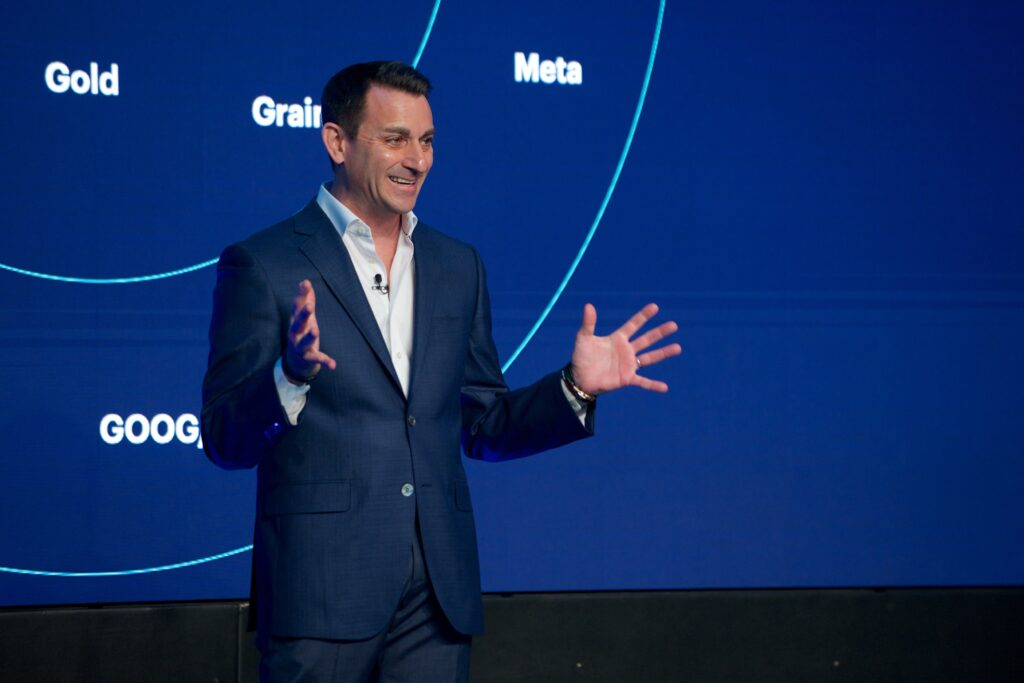FLASH FRIDAY is a weekly content series looking at the past, present and future of capital markets trading and technology. FLASH FRIDAY is sponsored by Instinet, a Nomura company.
Sir Isaac Newton, the British mathematician, said: “My powers are ordinary. It’s my application that brings me success.”
Brad Levy, chief executive of Symphony, used this quote in his keynote at the markets infrastructure and technology platform’s Innovate London conference last month.
The quotation is particularly appropriate as hundreds attended the conference in person, a novelty after the Covid-19 lockdowns. During the pandemic well-known astrophysicist Neil deGrasse Tyson pointed out that Newton stayed at home in 1665 to avoid the worst outbreak of plague in England since the black death of 1348. During this time Newton discovered the laws of gravity and optics and, if that wasn’t enough, he also invented calculus.
Financial services are going to have to be equally inventive to deal with the changes that have been put in motion during this decade.

Levy said: “I believe we will look back after 2030 and say this was a decade of a supercycle of changes. These are game-changing times, which is thrilling, but fraught with many challenges.”
He highlighted that the last six months have compressed enough change for a decade with increased volatility and inflation, rising interest rates, shocks in crypto and commodity markets, geopolitical events such as the invasion of Ukraine, and technology waves.
“There has been a lot of fog which makes it hard to see those next steps but much has been learned for sure,” Levy added. “We are at that critical juncture right now and it’s probably never been more important to have the right tools for the time and the task.”
He presented an optimistic vision of more flexibility, more mobility, more data science available to more people which will lead to scale, efficiency, a compression of costs and even more innovation.
“Innovation will never stop and if it does, for yourself or your firm, be afraid as you always have to be moving forward,” said Levy.
At the conference Symphony launched its embedded collaboration platform which allows other firms to pull Symphony’s communication stack into their platforms.
Matthew Cheung, chief executive of fintech ipushpull, attended the Symphony conference and said in a blog that workflow and communication are the next areas for innovation. ipushpull’s unified data collaboration platform can take any type of data, or workflow from any application, in real-time. The platform then transforms that data so it is delivered as clients want – such as via Symphony, Excel or APIs.
Cheung gave the example of many trading desks having the ability to easily compile and view prices but still struggling to easily share this data across the desk and with clients as they use efficient mechanisms such as email.
In addition, Cheung wrote that the conference highlighted that hybrid work is here to stay and that increased volatility is driving the need to digitize. He said: “According to Daniel Leon from HSBC Asset Management, if any part of your business contains manual processes and workflows, you leave yourself open to nasty surprises as the markets fluctuate, putting you in a defensive position and playing catch up to more agile competitors.”
Cheung was also optimistic as he came away buoyed by the level of innovation and the opportunities on the back of the uncertainty of the last couple of years.
Newton’s time between the summer of 1665 and the spring of 1667 is often called the Annus Mirabilis or the ‘Year of Wonders’. He said: “For in those days I was in the prime of my age for invention & minded Mathematics & Philosophy more than at any time since.”
Let’s hope the current decade proves to be equally productive.






